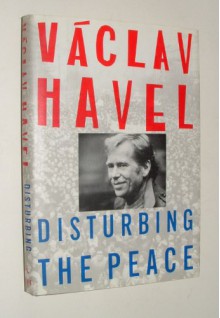On the eve of his fiftieth birthday, Vaclav Havel looks back on his life in the theatre, the literary politics of his early years and the stagnation that followed the 1968 Soviet invasion of Czechoslovakia. Havel also discusses his part in his country's struggle to restore morality and civic...
show more
On the eve of his fiftieth birthday, Vaclav Havel looks back on his life in the theatre, the literary politics of his early years and the stagnation that followed the 1968 Soviet invasion of Czechoslovakia. Havel also discusses his part in his country's struggle to restore morality and civic responsibility to public life and the price he has paid for this. Havel spent several years in prison, faced constant harassment by the police, and had his plays banned. Despite this, the account is lacking in bitterness. Czechoslovakia's leading playwright emerges as a man of profound moral conviction and clarity, a master of "absurd theatre" who, paradoxically, was in 1989 elected president of his country.
show less

